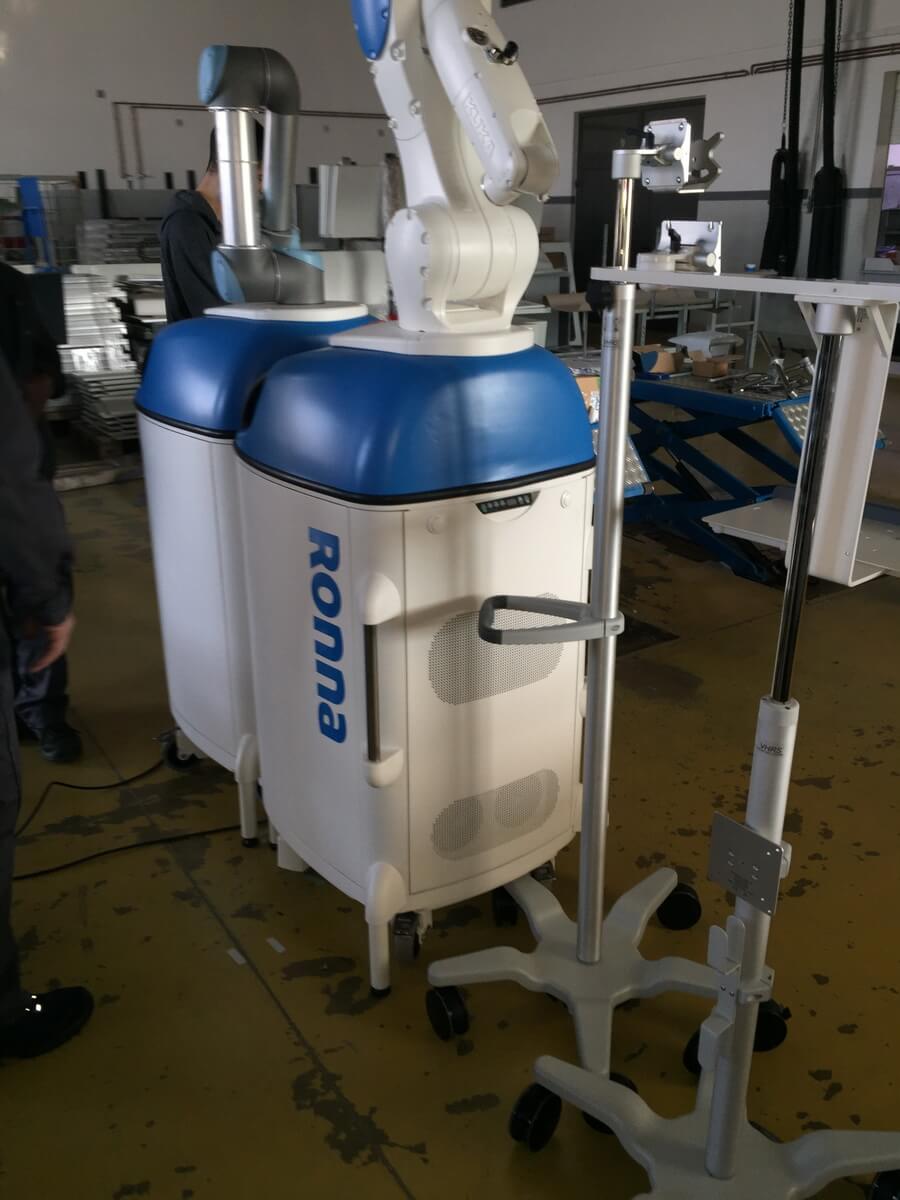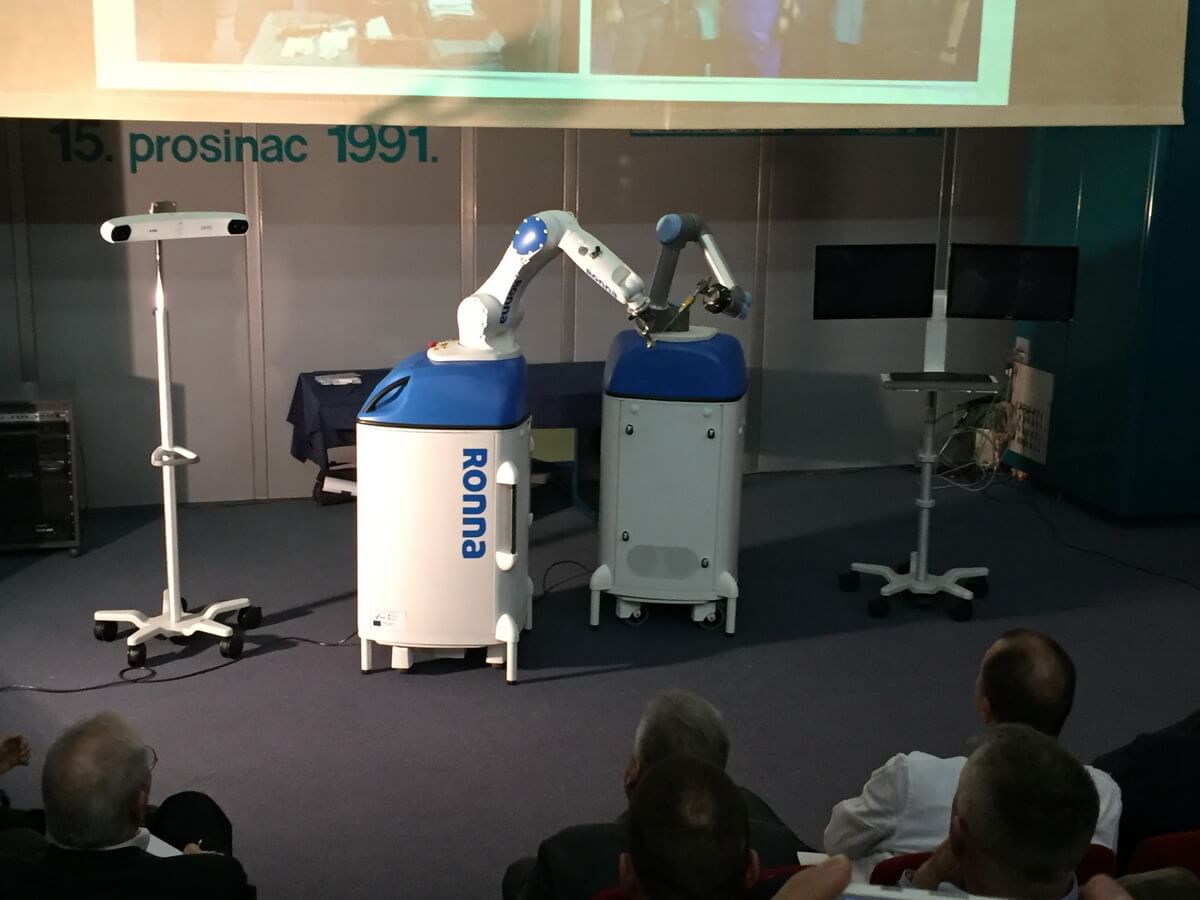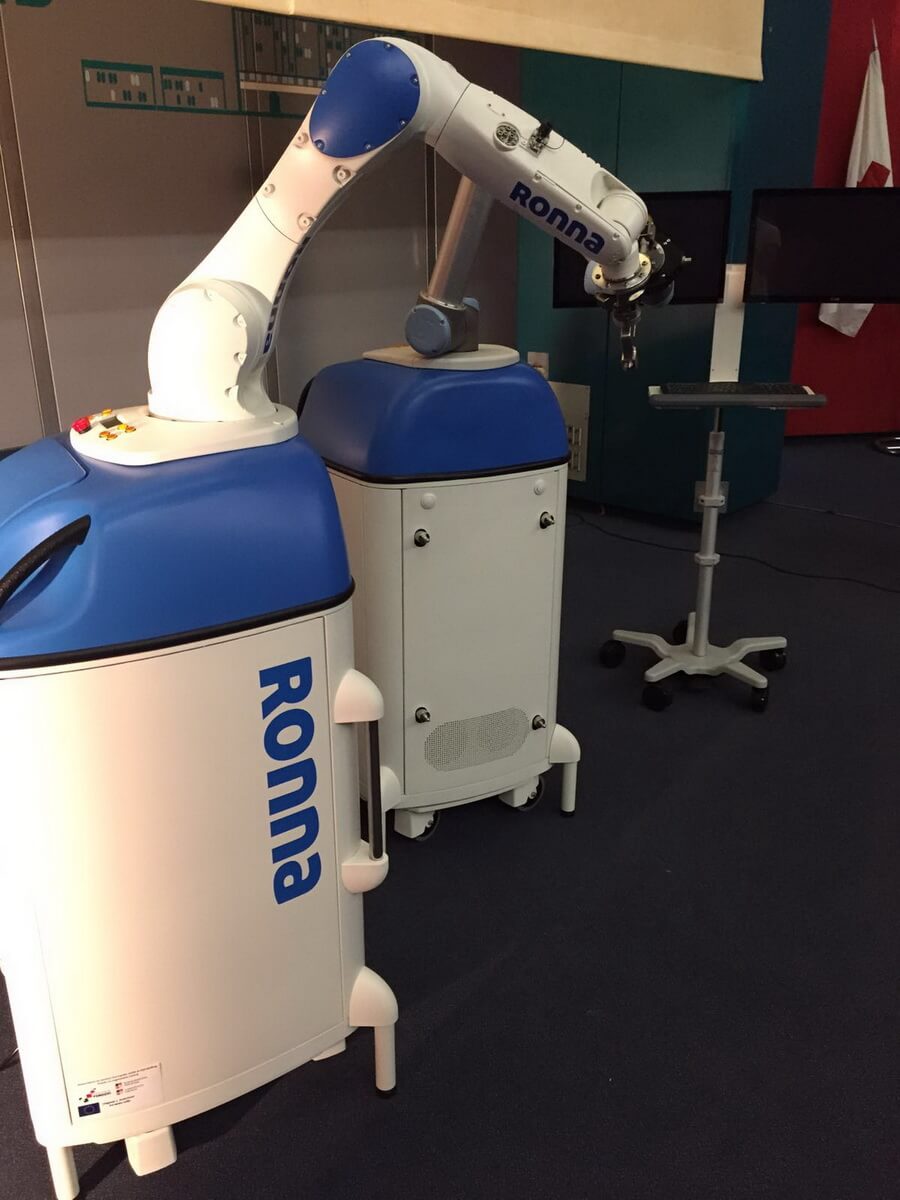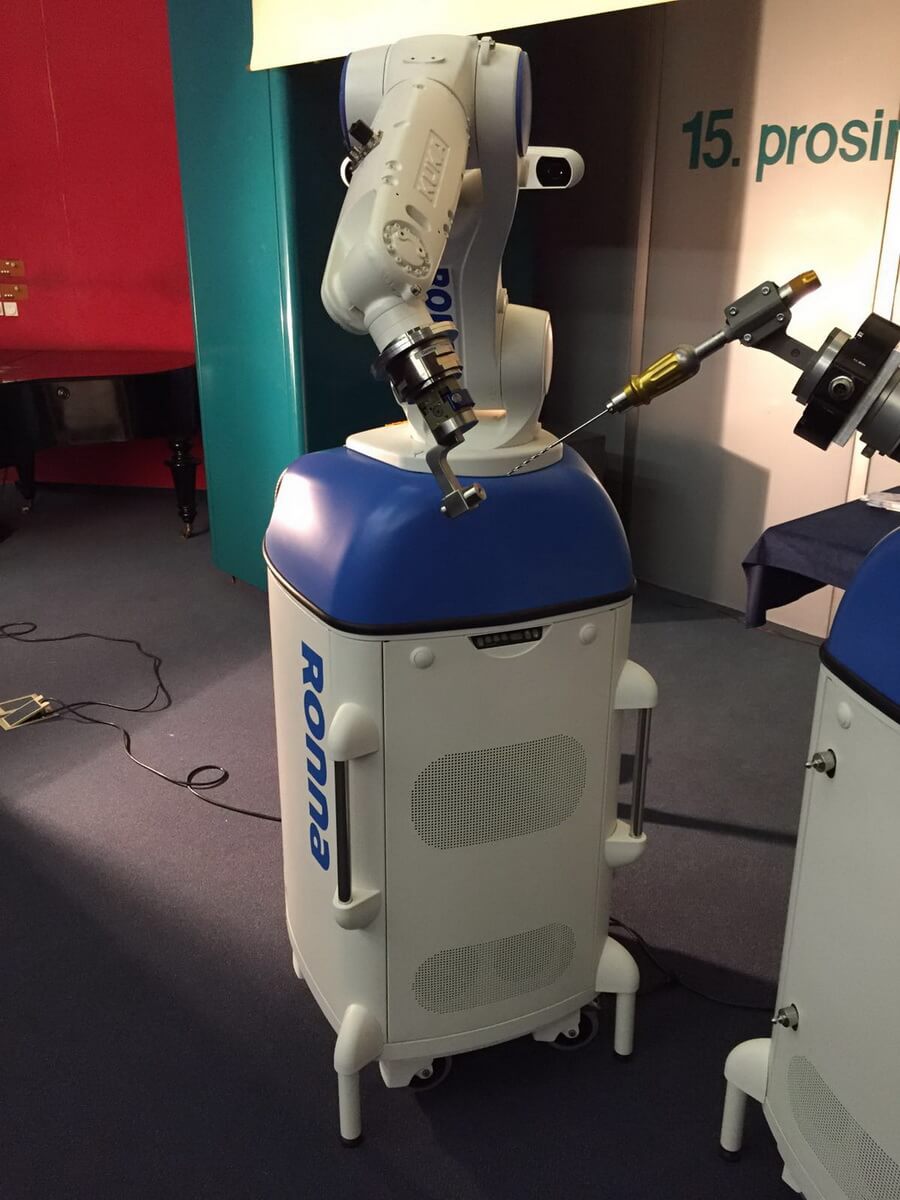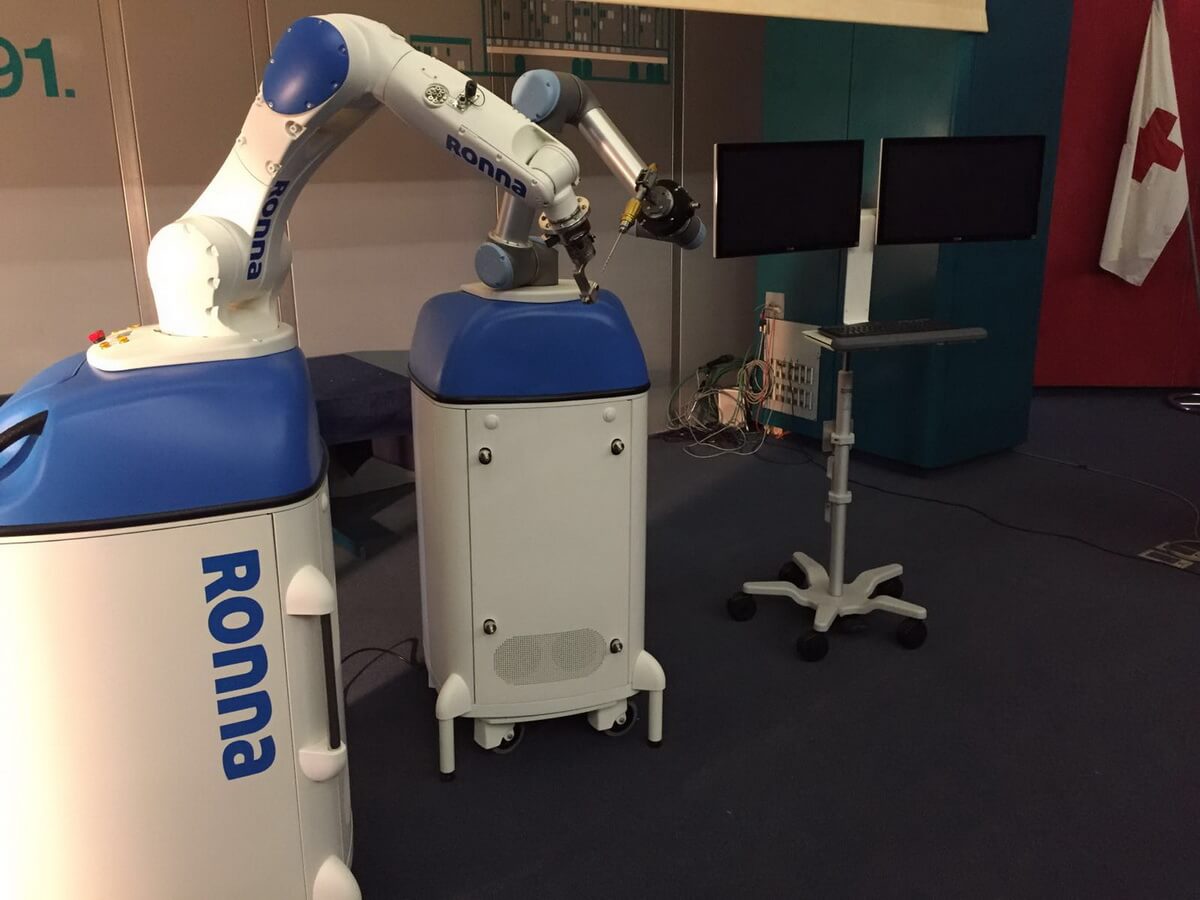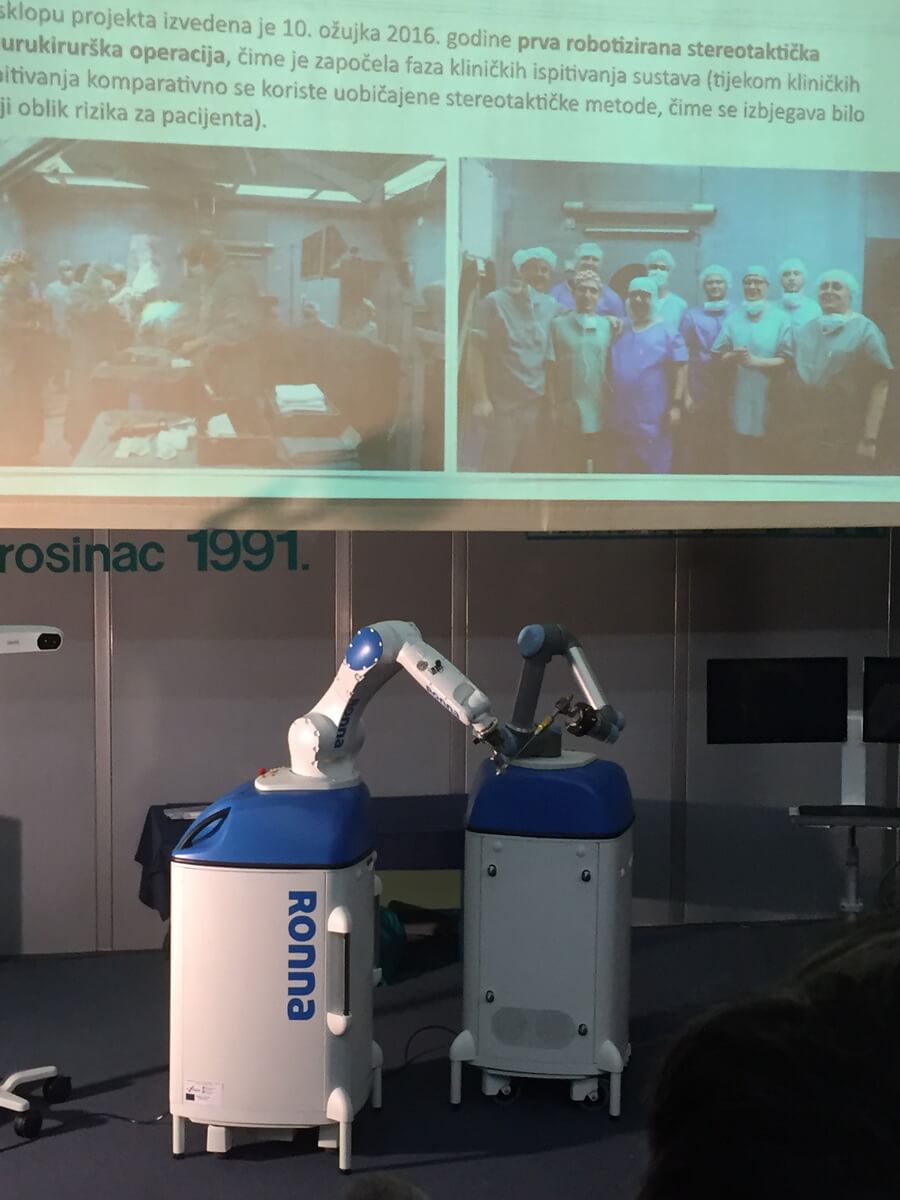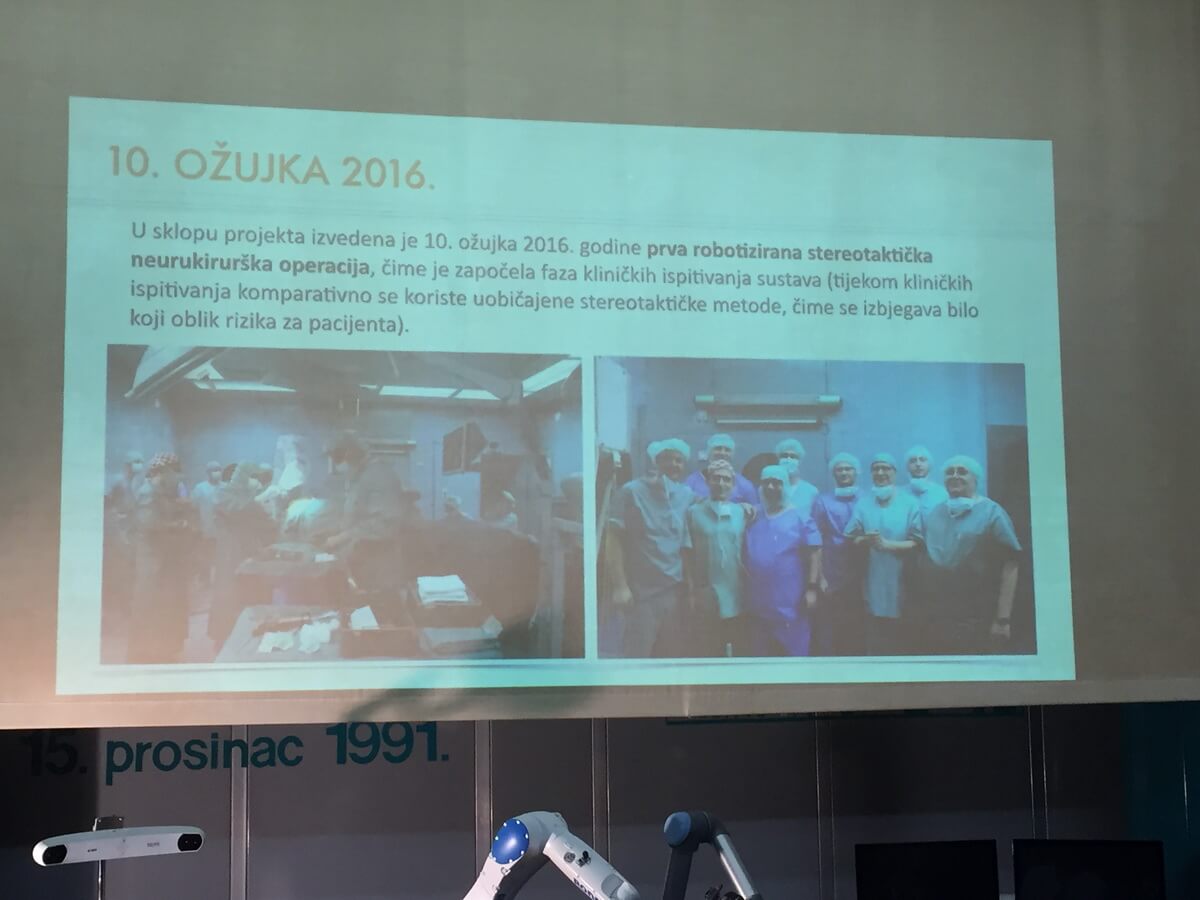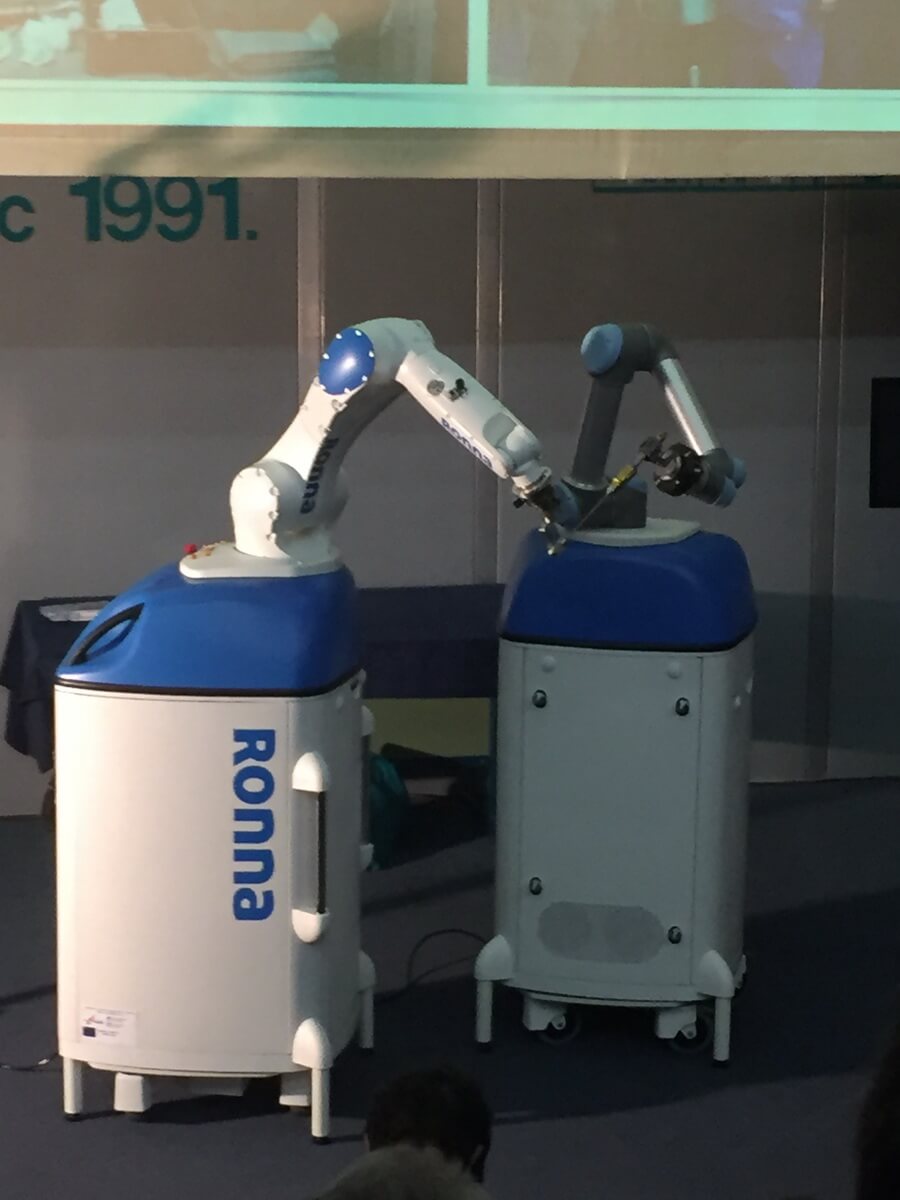Robotic neuronavigation
Dubrava Clinical Hospital / University of Zagreb / HIIM
We are proud to introduce Pirikom's product in partnership with our partners!
RONNA (Robotic Neuronavigation) is a project for the development of a robotic stereotactic navigation system for use in neurosurgery. The project was launched 7 years ago at the Faculty of Mechanical Engineering and Naval Architecture, University of Zagreb, in collaboration with Dubrava Clinical Hospital and the Croatian Institute for Brain Research (HIIM). The initiators of the project are prof. dr. sc. Bojan Jerbić (project manager), Asst. dr. sc. Darko Chudy and prof. dr. sc. Gojko Nikolić. The project was initially funded through the national TEST technological development program and the funds of the Ministry of Science, Education and Sports, then partly through the international funding of the UKF (Unity Through Knowledge Fund), the Croatian Science Foundation and now the European Regional Development Fund - ERDF ( Capacity building for research, development and innovation - RC 2. 2. 08).
The idea of the project is:
- improve the process of stereotactic robot navigation by linking patient tomographic images, computerized operation plan, and robot,
- apply a two-bar configuration: one routing robot and the other for instrument handling,
- implement intelligent and intuitive system management and
- apply inexpensive general-purpose robots to lower the cost of the system.
Since July 2013, intensive preclinical trials have been conducted, during which several objective tests and measurements have been performed. Thanks to European Regional Development Fund funding, RONNA has been upgraded to clinical and commercial levels. As part of the project, on March 10, 2016, the first robotic stereotactic non-surgical operation was performed, thus commencing the phase of clinical trials of the system (the usual stereotactic methods are comparatively used during clinical trials, thus avoiding any form of risk to the patient). operations in this part of Europe. Currently, there are only a few robotic systems in the world for neurosurgery, mainly in experimental applications. RONNA goes beyond the possibilities of existing solutions, according to the authors' knowledge.
Results achieved:
- Better and faster performing surgery.
- Less invasiveness of the intervention.
- Faster patient recovery (shorter hospital stay, lower costs).
- Better utilization of hospital operating resources.
- Mastering new knowledge.
- Introducing new technologies into medical practice.
Advantages:
- Development of new control models for the interactive action of robots in neurosurgical applications.
- Development of an original robotic neuronavigation system (for precise patient localization).
- Design of specific instruments for robotic application in neurosurgery.
- Investigation of new procedures in neurosurgical practice based on robot application.

